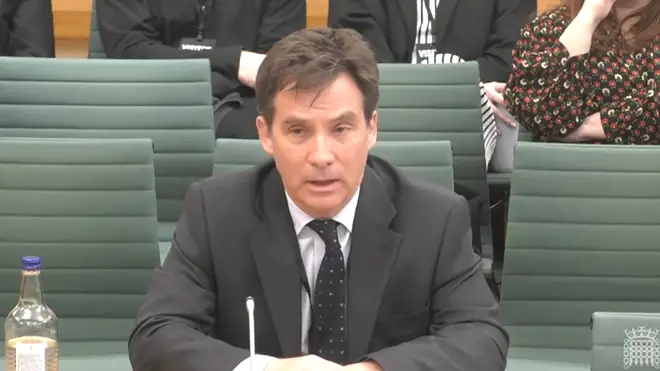
Ali Miraj 1pm - 4pm
21 February 2024, 12:24

The director of Gary Oldman-starring spy series Slow Horses also said that the show’s success proves that ‘quirky British’ TV can become global.
To create episodes of BBC soaps by generative artificial intelligence (AI) will take three to five years, MPs have heard.
Director James Hawes was asked on Wednesday by the Culture, Media and Sport Committee’s inquiry into British film and high-end TV about how technology will affect his industry.
The vice-chairman of Directors UK told MPs about a forum held after the announcement that Doctors would be cancelled later this year by the BBC.

He said: “One of the members there started talking about AI and it sent me investigating into how long it would be before a show like Doctors can be made entirely by generative AI and I took a poll with various VFX people…. I then spoke to some of the legal team who advised Sag(-Aftra) and (the) Writers Guild (of America) over the summer ahead of coming here.
“And the best guess is between three to five years, somebody (will) be able to say ‘create a scene in an ER room where a doctor comes in, he’s having an affair with a woman so they’re flirting, and somebody’s dying on the table’ and it will start to create it and you will build those and it will be generative AI.”
“It may not be as polished as we’d been used to but that’s how close we’re getting and I find that hard to believe, for all the creatives involved,” he also said.
“I believe the genie’s out of the bottle, I believe we have to live with this.
“I think it also is incredibly enabling.
“I think there are all parts of storytelling and British storytelling that can be filled in enabled by this but we have to protect the rights holders.”

He also MPs that Apple+ TV series Slow Horses, which he directed and is about reject MI5 agents, had “trouble getting going” and when first pitched to British broadcasters it was turned down.
“When Apple did pick it up,” he added, “they wondered whether it was just too quirky, and too British, and whether this will travel even though, obviously, we have a reputation for the spy genre.
“The attachment of Gary Oldman (and) its subsequent success, shows that even ‘quirky British’ can travel and it is now the longest-running repeated series on Apple.”
He also said: “It has shown that we can think beyond British parochial or we can turn British smaller stories into ones that have an outward glance, and that have universal themes.
“I think that’s really important.
“We have to be aware of the balance, the critical balance, between the benefits of inward investment and having our own domestic industry.”

Hawes also directed the Sir Anthony Hopkins-starring One Life, about the British stockbroker who saved hundreds of Czech children from the Holocaust.
He said the film is doing “incredibly well at the box office” for an indie film, matching the success of Northern Ireland-set drama Belfast and black comedy The Banshees Of Inisherin, who both won Baftas.
However, Hawes said “even setting that up was a struggle and during pre-production, there were times when it was uncertain, without the help of people like BBC films, it would not have come about”.
He added that was because of the “higher-level” budget, towards £15 million, because of the “glossy cast” which included Helena Bonham Carter and Sir Anthony and being set in two time periods.
“So ambition tends to come at a price and meeting that ambition and convincing people that this was a film that would sell beyond its Britishness is a key factor,” he added.
His film about the London-born humanitarian Sir Nicholas Winton, who died in 2015 at the age of 106, saw Oscar winner Sir Anthony and Johnny Flynn taking on the role of the man who saved 669, mainly Jewish, Czech children from the Nazis following a visit to Prague at the end of 1938.
The story was brought to the wider public’s attention by Dame Esther Rantzen in 1988 during a screening of the programme That’s Life!, which Hawes had worked on early in his career.